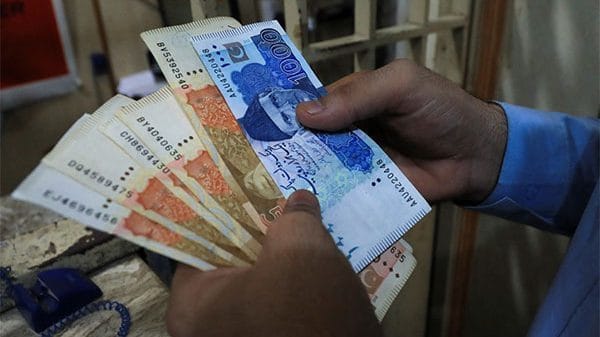New Delhi: Pakistan is on a tariff tumble. The government has agreed to the International Monetary Fund’s key demand to fully open its economy to foreign competition by reducing average import tariffs by one-third, bringing them down to 7.1 per cent over five years, with a focus on liberalising the heavily restricted automobile sector. Not all Pakistanis are happy. Many see it as bad news—a “death warrant for the economy.”
The latest bid to save the economy calls for a complete overhaul, especially in the auto industry, which has driven high tariffs and local monopolies. Tariffs on cars will reportedly drop to 5.6 per cent. The goal is to make cars cheaper and end protections for local manufacturers by 2030.
Economists think this is a good move. Initially, Pakistan may feel the pinch, but liberalisation will eventually give rise to competitiveness and boost its economy.
“Ideally, it should not be viewed as a measure reluctantly accepted by Pakistan, but as a fundamental reform that the government proactively embraces to benefit Pakistani consumers and boost the economy’s competitiveness,” economist Javed Hassan told ThePrint.
A ‘liberal’ deal and its impact
While tariff reduction may result in revenue loss of PKR 278 billion, this is expected to be offset by increased economic activity.
Pakistani companies are unprepared for foreign competition, having thrived under tariff protection, which has hurt consumers, according to a report by The Express Tribune.
Hassan also pointed out that Pakistan’s average 10.6 per cent tariff remains higher than South Asia’s 5.33 per cent and Asia’s 7.5 per cent.
The IMF demand requires Pakistan to implement these reforms within five years and ensure a stable tariff policy for at least three years. The aim is to increase Pakistani exports to $47 billion by 2030 and grow the economy by 4.6 per cent.
Pakistanis are sceptical.
“IMF of course will work for the interests of US who wants to impose tarrifs on its own imports while other countries to remove theirs to allow free flow of US goods [sic],” an X user said said. Others agreed.
“Bad decision. A country like USA is adopting policies to protect domestic industries. We are doing the opposite,” one Jamil wrote.
According to reports, a new National Tariff Policy will be introduced in July, along with an Auto Industry Development and Export Policy a year later. Pakistan has promised to seek approval for the new tariff policy from the federal cabinet by June, with tariff cuts set to begin in the 2025-26 budget, which will be presented in Parliament in June.
Citizens are convinced “this will destroy the Pakistani economy in the long term.”
“What a queer demand to accept when we find most countries, led by the US, engaged in a tariff war: each wishing to protect her own interest by restricting imports?” X user Khalil Hassan, a former banker, wrote.
(Edited by Prashant)






